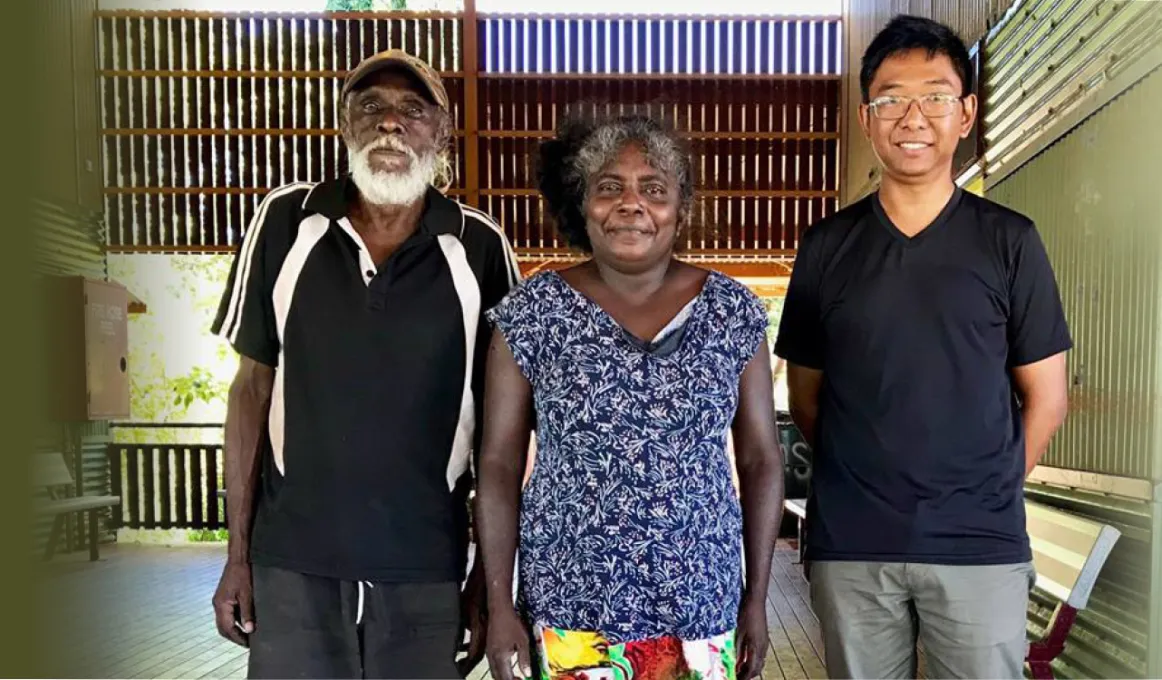Revitalising traditional languages on Croker Island

Work is going ahead to revitalise two Croker Island traditional languages: Iwaidja and Marrku.
On Croker Island, two hundred kilometres northeast of Darwin, work is underway to record and save two critically endangered languages.
Iwaidja is one of the traditional languages of the Cobourg Peninsula and Croker Island, while Marrku is the ancestral language of Croker Island.
Today Iwaidja is spoken only by elderly residents while no one speaks Marrku anymore. However, in the International Year of Indigenous Languages, linguists and local elders are working together to ensure these languages will survive for future generations.
In Minjilang, the community on Croker Island, local Isobel Lami Lami and ARDS Aboriginal Corporation community linguist Aung Si are looking forward to the task.
‘The aim of the project is to revitalise Iwaidja and increase its visibility in the community and get people excited about learning and speaking the language,’ Aung Si said.
’I’m thrilled to be working with Isobel Lami Lami who is fluent in Iwaidja and a much respected figure in Minjilang. She teaches at the local school and we will be creating classroom resources in Iwaidja to make learning the language fun. We’re taking the kids on excursions to the bush to look at plants and animals and film it as a resource for students in the future.’
Isobel and Aung will also be documenting traditional knowledge in Iwaidja as well as the Iwaidja terms for the seasons, plants and other vital information central to Iwaidja culture. And local songmen are going to record some Iwaidja songs, including “Djurtbirrk”; traditional love songs young men sing to whom they were courting.
With no speakers of Marrku left, the task is even harder.
‘My mother was the last speaker of Marrku so I have a special link to it,’ Isobel said.
‘We’re documenting as many Marrku words and terms as possible by talking to the old people. Reviving Marrku will be very difficult but at least we will have a Marrku vocabulary recorded that people can use in future attempts to revive our language.’
‘We don’t want our kids to lose our language because language keeps our community strong,’ she said.
Find out more
The Australian Government supports ARDS’s work in Indigenous language preservation through the Indigenous Languages and Arts program.
ARDS Aboriginal Corporation works with Aboriginal people to share their traditional and contemporary culture, knowledge and voice with the world.